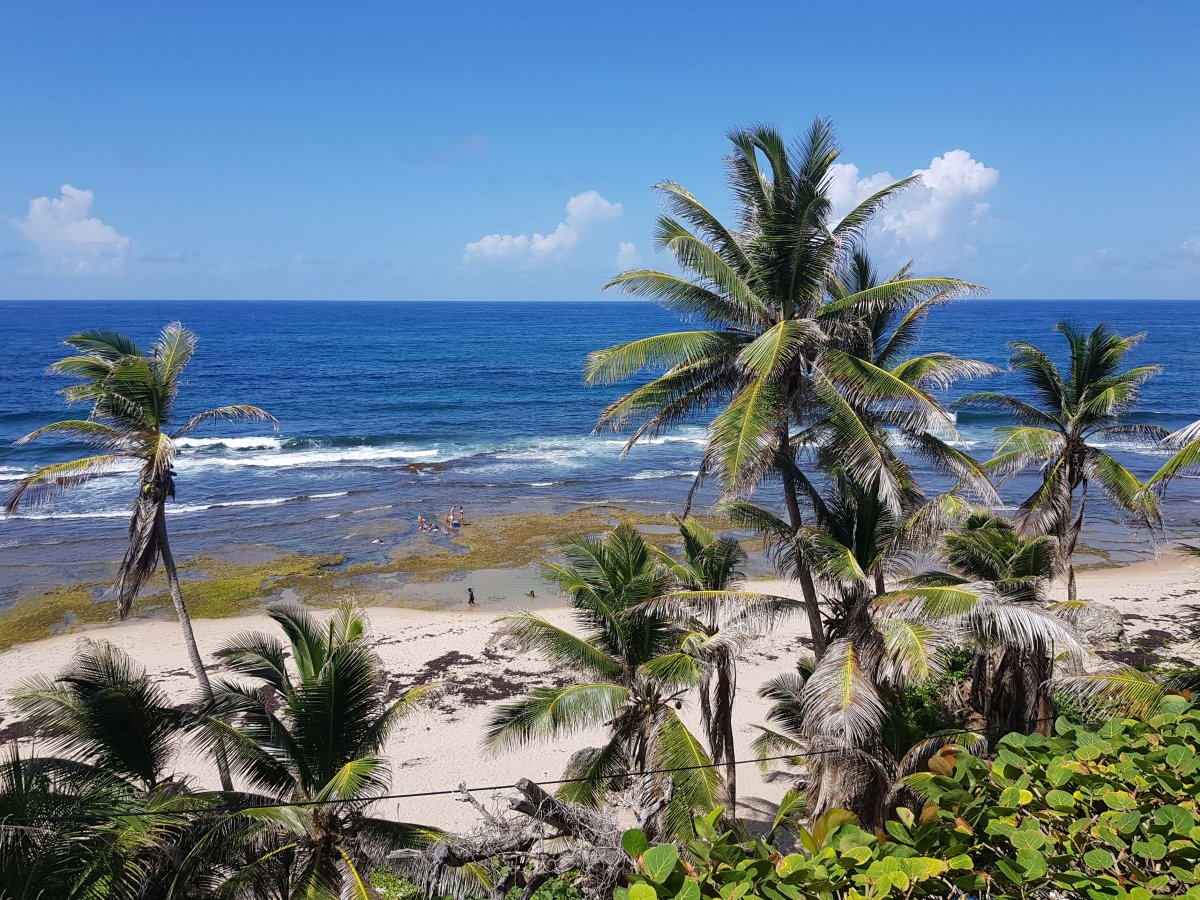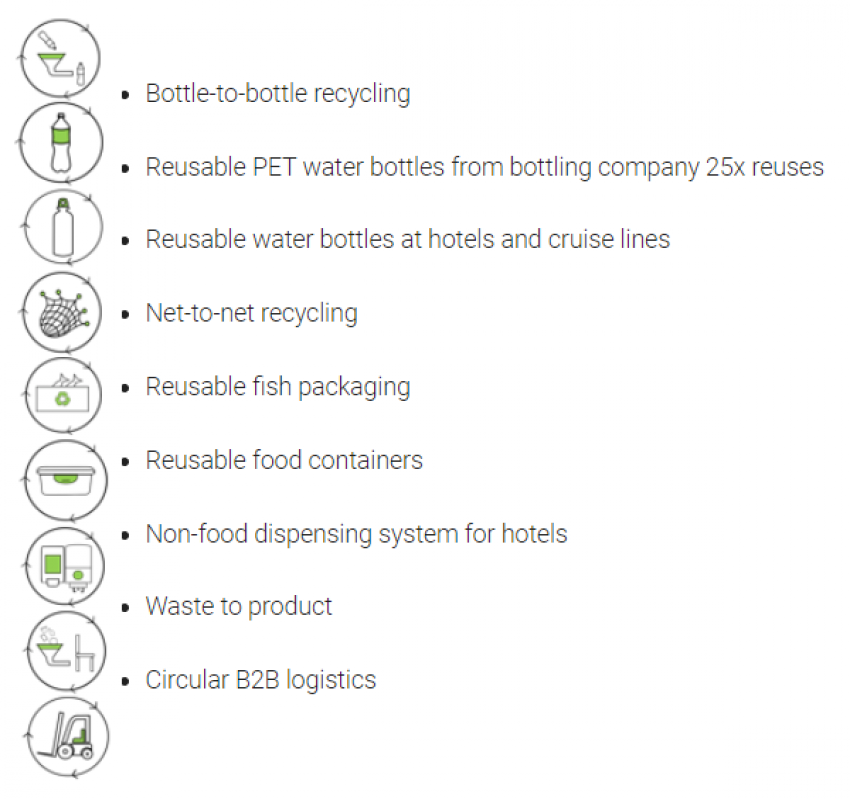Nine preliminary solutions identified to reduce plastic waste generation and leakage in three Caribbean countries
In 2020 and within the framework of the Plastic Waste Free Islands project, Searious Business consultants collaborated with the IUCN and Asia Pacific Waste Consultants (APWC) to determine the plastic waste pathways across the life cycle of different plastic types within the tourism, fisheries and waste management sectors in three Caribbean islands: Antigua and Barbuda, Grenada and Saint Lucia. The end goal is to develop a blue print of innovative solutions to integrate in each island in order to prevent plastic to end up into the environment.

Barbados
Photo: UICN / Dale Benskin
APWC’s role was to collect data on the type and amount of plastic waste generated and leaked in the islands, whereas Searious Business consultants focused on the qualification analysis of that data, which led to the identification of potential solutions to reduce plastic waste.
The qualification consisted in gathering insights and contacting relevant stakeholders across the plastic value chain of the three sectors in order to identify the most purchased plastic items, the sustainability practises already in place, and to determine the willingness to implement sustainable solutions.The qualification phase provided and understanding of the plastic material flows, including types of plastics and products’ application.
For each stream of plastics, Searious Business consultants identified the value chain among the three sectors from product generation to its end of life. For each major stream suppliers, brands, user scenario and current recycling routes were tracked allowing to have a complete picture of the national plastic footprint.
By understanding volumes of plastic waste, nine concept solutions to reduce plastic waste generation and leakage were identified based on local knowledge, best practices, and existing initiatives, tackling the roots of plastic pollution while ensuring financial returns through the development of innovative solutions.
 Nine concept solutions
Photo: Searious Business
Nine concept solutions
Photo: Searious Business
I
The nine concept solutions were developed taking into consideration the following parameters:
- Business case potential considering national economic context
- Potential for scaling up phase (long-term market interest)
- Environmental impacts
- Regional and national policy framework
- Government sustainability agenda and targets
- Private sector sustainability agenda and targets
- Stakeholders interest and ease of engagement/participation
- Private sectors barriers and requirements
During the course of December 2020, the solutions were presented to the Selection Committees established in the three islands. The Committees included governmental sector representatives with the task of assessing the solutions presented by Searious Business consultants and selecting two solutions based on a careful value chain analysis.
Bottle-to-bottle recycling, reusable PET bottles, net-to-net recycling, and waste to product were selected by the project countries as their priority solutions. After the prioritization, Working Groups have been established in each island. The scope of the Working Groups is to collectively unpack the business case, prototyping, and piloting of the solutions selected. Each Working Group member is invited to participate in four sessions that will take place during the first semester of 2021, where their input and insight will enable the next phase: developing prototypes and pilots of each solution.
To date, three Working Group sessions have been conducted using a participatory methodology in two islands; sessions are expected to conclude by May 2021. By July 2021, Searious Business consultants aim at starting the implementation of the solutions in each island through small-scale pilots, which will test the market readiness and scaling up potential of the proposed solutions.
About Plastic Waste Free Islands
The Plastic Waste Free Islands (PWFI) project, funded by the Norwegian Agency for Development Cooperation (NORAD) and implemented by IUCN, seeks to make a significant, quantified reduction in plastic waste generation and leakage within the planned project timeframe of three years. This is a global initiative, working in Pacific and Caribbean Small Island Developing States (SIDS). In the Caribbean region, the project focuses in Antigua and Barbuda, Grenada, and Saint Lucia, and involves participation of the country governments, as well as regional partner, the Organisation of Eastern Caribbean States (OECS).



